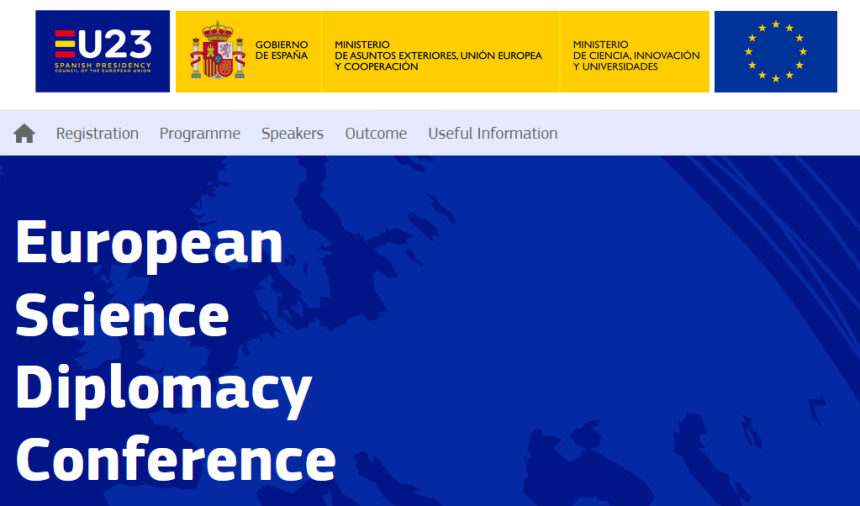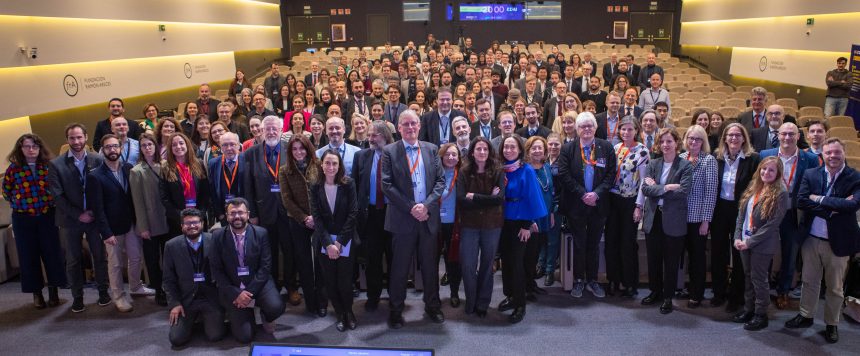Capacity building: All stakeholders involved in science diplomacy will benefit from exchange and suitable capacity building activities. Therefore, cutting-edge, interdisciplinary, intergenerational, interactive training modules are needed. These will enable diplomats, public officials and scientists to cooperate in an efficient way, strengthening future science diplomacy. This capacity building runs in parallel to the need to establish new science diplomacy positions such as science advisors in foreign ministries, scientific staff at Embassies, etc., which will also foster new career paths for science diplomacy professionals.
 This session starts at 06:51 in the recording that is available at https://www.youtube.com/watch?v=zNpfkcuExMU&t=41s.
This session starts at 06:51 in the recording that is available at https://www.youtube.com/watch?v=zNpfkcuExMU&t=41s.The outcomes of the conference (https://eu-science-diplomacy.service-facility.eu/en/outcome) refer to the upcoming discussions on a European Framework for Science Diplomacy and the impact of our EU research projects continue to be echoed in the discussions of the working groups around the development of the EU framework and approach on science diplomacy.
Invited by the Spanish Presidency of the Council of the European Union and the European Commission, representatives of a wide range of stakeholders, including governments, international organisations, academia, non-governmental organisations, and the private sector, gathered in Madrid on 18-19 December 2023 to discuss a European approach to science diplomacy. The following are the main outcomes of the discussions¹ :
¹ Disclaimer: This text reflects the discussions at the first European Science Diplomacy Conference. It does not necessarily represent the position of the European Commission, the Government of Spain, or the employers of any of the conference participants.
> Given the rapidly evolving geopolitical and scientific-technological landscape, Europe needs to act strategically and develop an ambitious European framework for science diplomacy.
> This framework should build on the impressive legacy of European science diplomacy and the number of existing activities and initiatives at EU level and in Member States.
> This framework should harness the expertise and skills of the fast-growing community of European science diplomacy scholars and practitioners.
> This framework should identify synergies and maximise the EU-added value of collaborative action, including through appropriate linkages between research and foreign policy instruments, creating spaces for interaction between the scientific and diplomatic communities.
> This framework should serve to define the principles on which European science diplomacy action should be based, building on the EU’s Global Approach to Research and Innovation.
> This framework should re-imagine European science diplomacy in a fragmented, multipolar world and reflect on its use as a soft and as a hard power, based on the concept of being as open as possible, but as closed as necessary.
> This framework should reflect on how European diplomacy can become more strategic, effective, and resilient through the use of scientific evidence and foresight, including by enabling diplomacy to deal with the opportunities and risks of disruptive technologies.
> This framework should facilitate the development of science-based solutions for tackling the increasing pressures by public and private actors on the global commons, such as the Arctic, the Oceans, and Low-Earth Orbit, and support a rules-based multilateralism.
> This framework should leverage the impact of research and innovation to tackle systemic global challenges like climate change, biodiversity loss, and environmental pollution, and to achieve the Sustainable Development Goals, thereby creating better livelihoods for all.
> This framework should strengthen the role of science diplomacy in EU and Member State diplomatic missions, including through science counsellors, and foster the EU’s global science diplomacy outreach, e.g., by engaging with scientists in the diaspora and alumni of mobility schemes.
> This framework should foster the EU’s relations with the European Neighbourhood, building on the successful example of the Partnership for Research and Innovation in the Mediterranean Area (PRIMA), as well as with strategic partners in other world regions such as Latin America and the Caribbean, Africa, and the Indo-Pacific.
> This framework should serve to foster capacity-building for European science diplomacy through the training of scientists, diplomats and those working at the interface, as well as by advancing the frontiers of science diplomacy through interdisciplinary research, including social sciences and humanities.We look forward to the recommendations to be developed by the recently established Science Diplomacy Working Groups and invite the European Commission, the European External Action Service and Member States to consider these when reflecting about the scope of a future European framework for science diplomacy.







